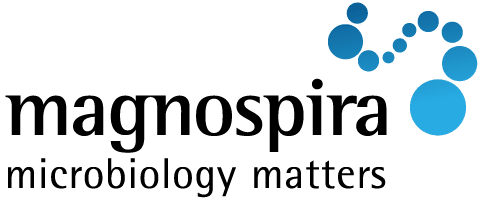A new look at us humans
Humans are made up of countless bacteria. Estimates put the number of cells at around 38 trillion. In contrast, we “only” have around 30 trillion body cells. That’s quite a lot. But without these microbes, our microbiota, we would not be able to survive.
For a long time, it was thought that the human organism consisted only of body cells and that microorganisms were either hostile invaders or harmless intestinal bacteria. It was only in the last 20 years that the importance of bacteria for the human organism became apparent: the term microbiome was coined.
The microbiome
Scientists are debating what the term microbiome should be used for. The proposal to use microbiome for the totality of all genes and to call the totality of all microbes microbiota is popular. Ultimately, however, it is just an academic discussion. The microbiome is generally understood as a term for all bacteria that are found in and on our bodies.
But why is this relevant at all? Why is it important to study the bacteria in our body, our microbiota? Why is it necessary to know that it is not only made up of intestinal bacteria?
Why are bacteria vital for us?
We know from our own experience that most people knowtwo mainthings about bacteria:
- Intestinal flora is essential for good digestion
- There are alsopathogenic bacteria, so-called pathogens
This is a shame, because bacteria are far more important than most people realize. They not only have a major influence on our digestion in the intestine, but are also essential for many metabolic processes. But that’s not all: our microbiota also has a direct effect on our psyche and is therefore responsible for whether we are in a “good mood” or are disgruntled, depressed or even demented. Bacteria therefore play a fundamental role in our health and our lives.
We would not be able to survive on this planet without these small inhabitants. They are therefore not tolerated “roommates” on our body or just micro-workers for our body’s own sewage treatment plant, the intestine, but a part of us. We are the bacteria!
Bacteria are a part of us.
This is a concept that most of us still have to get used to: that the small, lively cells are not something disgusting, but together with the body cells form the human being. And there’s more: in the course of evolution, bacteria have also penetrated our body cells and form the mitochondria in them, which are essential for our energy supply.
Most bacteria in our bodies are between 1 and 3 µm (micrometers = millionths of a meter) in size. If all the bacteria in our body were strung together like pearls on a string, this string would be 200,000 km long with an average size of 2 µm. That is half the distance to the moon or five times the circumference of the earth.

A change of perspective is necessary.
But despite this knowledge, most people are frightened when they see a swab of our skin under a microscope and ask: “What’s that on me?” This is an incorrect statement: it should actually read: “Look how I move on the smear.”
But this requires a change of perspective that is not (yet) anchored in people’s minds.
The research work of recent decades has produced great things. Not only do we now know much more about the function of microorganisms and the microbiota, but we are also gradually learning how certain diseases and infections are caused because some bacteria can no longer multiply to the necessary extent. This is also a paradigm shift: previously it was thought that diseases were caused by the PRESENCE of certain pathogens. We are now learning that many diseases are caused by the ABSENCE of certain types of bacteria. This is a quantum leap in our understanding of microbiology:
We need to learn not how to remove bacteria with antibiotics and other biocides, but how to promote the growth of good bacteria. The focus is no longer on elimination but on supporting growth. Commercial probiotics, which have emerged from current research on these topics, go in this direction and primarily support the intestinal bacteria.
Cause – not symptoms!
But what applies to conventional medicine also applies here: We must not rely on medication and probiotics. It is a mistake to demand a specific active pharmaceutical ingredient for every ailment. Just as it would be wrong to rely solely on the power of germs that are artificially supplied to the organism via commercial probiotics. Instead, we need to learn how to stay healthy naturally and prevent the destruction of our natural microbiological flora. The same applies here: Don’t cure the symptoms, tackle the cause.
A real opportunity!
But this is precisely where the enormous opportunity for a new understanding of the importance of bacteria for humans lies: We can significantly determine the number and composition of our microbiota through our lifestyle. This gives us the opportunity to work on our health in a self-determined way and to remain healthy and productive into old age without antibiotics and without serious illnesses. (JS)
Header: Adobe Stock / anttoniart – stock.adobe.com; Adobe Stock / nobeastsofierce – stock.adobe.com



